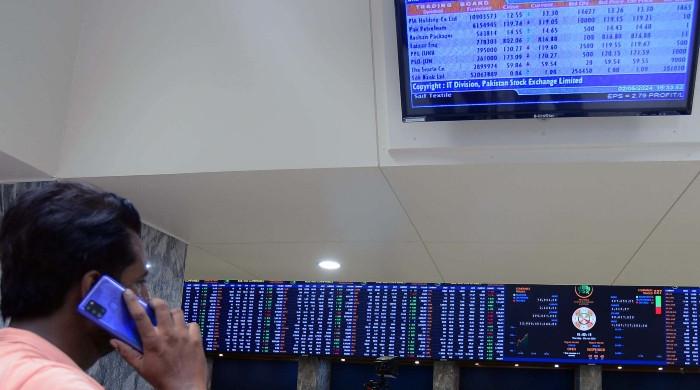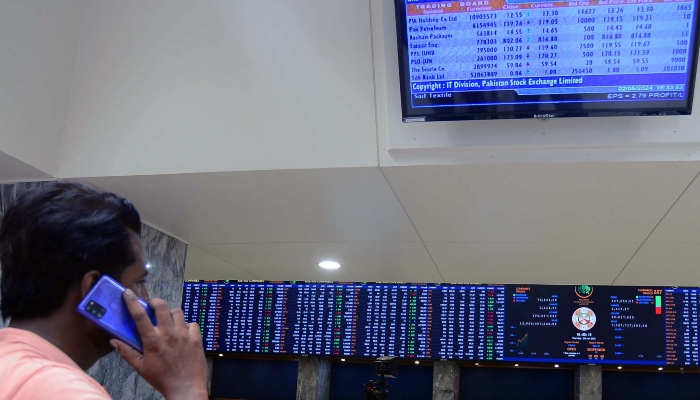Profit-taking, IMF concerns drag PSX into red

Selling pressure was observed on the bourse on Monday, with investors engaging in widespread profit-taking amid the absence of fresh positive catalysts.
Investor sentiment remained subdued, as the ongoing earnings season failed to generate any substantial optimism. Additionally, falling cement prices and looming uncertainty over the upcoming International Monetary Fund (IMF) review further dampened market confidence, keeping participants hesitant to take new positions.
The Pakistan Stock Exchange’s (PSX) benchmark KSE-100 Index registered a modest gain of 50.21 points (0.04%) to reach an intraday high of 112,851.14, before retreating as investors exercised caution amid external and domestic economic concerns.
The market also recorded a low of 111,857.33, reflecting a decline of 943.6 points (-0.84%) from the previous session’s close of 112,800.93.
Muhammad Saad Ali, Director of Research at Intermarket Securities Ltd, highlighted the factors influencing the market, saying: “Broadly, profit-taking among institutional investors due to lack of new positive triggers and the current result season so far failing to lift investor sentiment.”
“Also, worries around falling cement prices. Lastly, market waiting for the IMF review to pass before building fresh positions,” he added.
Finance Minister Muhammad Aurangzeb on Monday reaffirmed the government’s commitment to eliminating tax evasion and tackling corruption, as Pakistan engages with the IMF for crucial economic negotiations.
Speaking to the media, the finance minister confirmed that the IMF’s technical mission has arrived in Pakistan for a three-day visit to discuss climate financing and economic reforms. He further said that another IMF delegation is scheduled to arrive next month to discuss matters pertaining to the country’s $7 billion Extended Fund Facility (EFF).
Sources revealed that a four-member IMF delegation is currently in Pakistan and has begun introductory meetings with government officials. The technical-level negotiations will focus on green budgeting, climate tracking, and reporting, as well as climate budgeting projects.
The climate change-related discussions come against the backdrop of Islamabad’s request for $1 to $1.5 billion in funding to augment the existing loan of $7 billion under EFF up to $8 or $8.5 billion.
The IMF review is a crucial step for securing continued financial support and maintaining economic stability.
Pakistan’s foreign exchange reserves increased by $35 million during the week ending February 14, bringing total reserves held by the State Bank of Pakistan (SBP) to $11.20 billion. However, the country’s external financing needs continue to exert pressure on reserves, with analysts closely monitoring developments in remittances and export performance.
The total liquid foreign reserves stood at $15.95 billion, with commercial banks holding $4.75 billion. Despite the latest increase, external debt repayments remain a significant challenge, as evidenced by a $252 million decline in reserves recorded in the previous week, bringing SBP’s total reserves to $11.17 billion as of February 7.
Pakistan’s external account has shown signs of improvement, largely driven by a surge in remittances and better export performance. However, ongoing debt obligations continue to weigh on foreign exchange reserves, making economic negotiations with global lenders all the more critical.
The KSE-100 Index closed at 112,801 points on Friday, gaining 716 points (0.64%) on a weekly basis, extending its positive performance for the second consecutive week. Investors took positions in select sectors, as corporate earnings reports and external economic developments shaped trading activity.
Despite the weekly gains, market analysts believe that investors remain cautious ahead of the IMF review, with institutional investors opting for profit-taking amid a lack of fresh catalysts.
Source link




